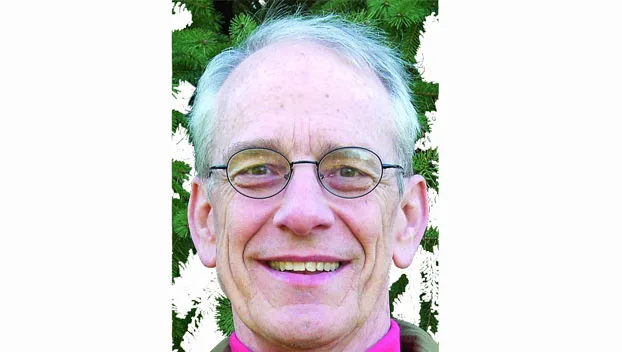Enoch: African American blacksmiths of Clark County
Published 12:00 pm Saturday, September 30, 2023
By Harry Enoch
Contributing Writer
Following Emancipation, former enslaved men who had learned a trade had much better economic prospects than unskilled laborers. One of these trades, blacksmiths, were much in demand in Kentucky after the Civil War up until the mid-1900s. In addition to shoeing horses, they made and repaired farm implements and a variety of tools.
William Webb Banks, author of “Brief History of the Clark County Negro,” recalled that “The pioneer blacksmiths are Jack Taylor, __ Hicks, James Brooks, John Rockhill, John Moss, Zack Bell, Thomas Phelps, Henry Jacobs, Monk Hopewell, Henry Daniel and Joe Jones.” An analysis of the early censuses, 1870–1900, reveals that African Americans made up a significant fraction of the blacksmiths in Clark County. They accounted for 10 of the 30 blacksmiths in the county in 1870, and 14 out of a total of 48 in 1880.
Two families—the Bells and Brookses—merit special mention for their long association with the blacksmith shop at Becknerville. The shop was located at the northeast corner of Combs Ferry Road and Waterworks Road. The first proprietor was Zach Bell, who purchased the shop from Joseph H. Powell in 1885. He was aided in the shop by five sons, all blacksmiths. Zach passed away in 1900.
“Becknerville—Died, on the 25th of January, Zach Bell, our village blacksmith. He was an honest colored man of good moral character and a good workman. He will be greatly missed.”
After Zach Bell died, two of the sons, George and Garfield Bell, moved their blacksmith practice to Winchester. Sherman Greene* recalled working for Garfield in the 1940s:
“Garfield Bell had a blacksmith shop near Oliver School. When King Ranch came to Kentucky—buying part of Idle Hour Farm on Old Frankfort Pike—they sent upwards of 200 horses to Winchester for Bell to shoe. Sherman walked over to work with him after school. His job was to keep the bellows going and hold the horses while Mr. Bell did the shoeing. Sherman once had a horse that would not settle down. Bell tried his hand, and he couldn’t settle the horse either, so Bell slugged him. The horse went down—and when he got up, he stood very still.”
Garfield Bell was likely the last blacksmith in Winchester when he passed away in 1963.
The Bells were succeeded at Becknerville by the Brooks family. James Brooks and his son Edmond Brooks had worked on the Fishback farm for a number of years. James had learned the trade while still enslaved. Zach Bell’s heirs sold the shop at Becknerville to C. G. Stephenson in 1915, and in 1918 Edmond Brooks purchased the shop from Stephenson.
Edmond Brooks was featured in a 1942 article in the Courier-Journal. Edmond said he had worked with his father from the time he was a small boy. He never had time for school but taught himself to read and write. At the Becknerville shop, Edmond made a name for himself shoeing racehorses. He recalled that the line outside the shop was sometimes half a mile long. Edmond eventually acquired a portable forge which he could carry around to the various farms. By the 1940s, most of his business involved repairing farm implements and making things that could not be store bought.
The article described Brooks as a “large dignified man,” typically dressed in a faded purple flannel shirt and an old felt hat. Two of his sons worked with him in the shop, Felix who was a veteran of World War I, and Theodore, a mechanic.
After Edmond died in 1957, Felix carried on the business in the Becknerville shop. People attracted by his reputation as a master blacksmith came from near and far. He specialized in shoeing saddlehorses, racehorses, trotting horses and plow horses. The landmark old shop burned in 1965. Neighbors encouraged him to rebuild but, at age 72, he never got around to it. Felix died in 1971 bringing to an end three generations of blacksmiths.
Note: Jane Burnam and I interviewed Sherman Greene in 2010 for the Winchester Black Oral History Project. This article is dedicated to Joyce Morton, founder of the Winchester Black History & Heritage Committee and a long-time activist for Winchester’s black community. Joyce and her husband Eugene are moving to Nicholasville to be near their children. They will be missed.



